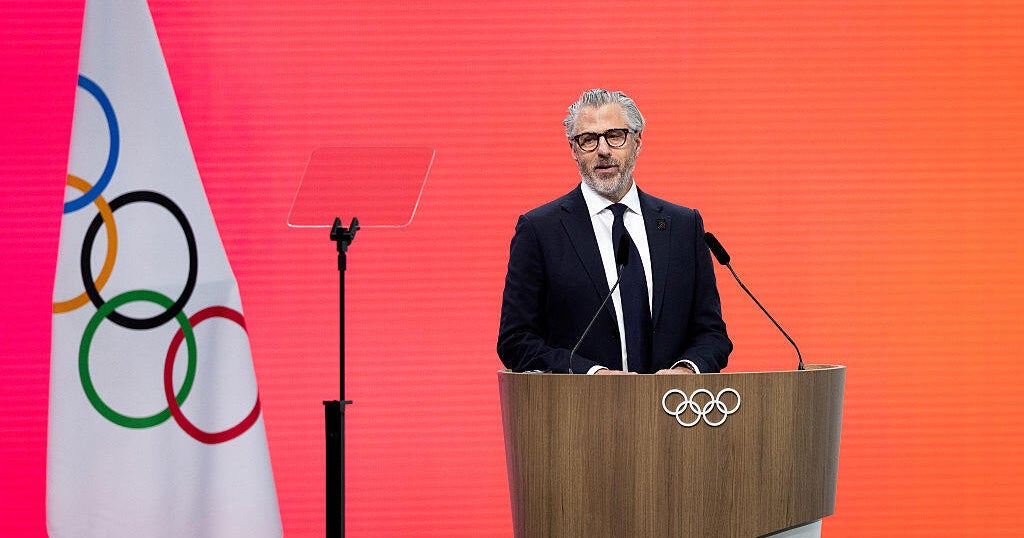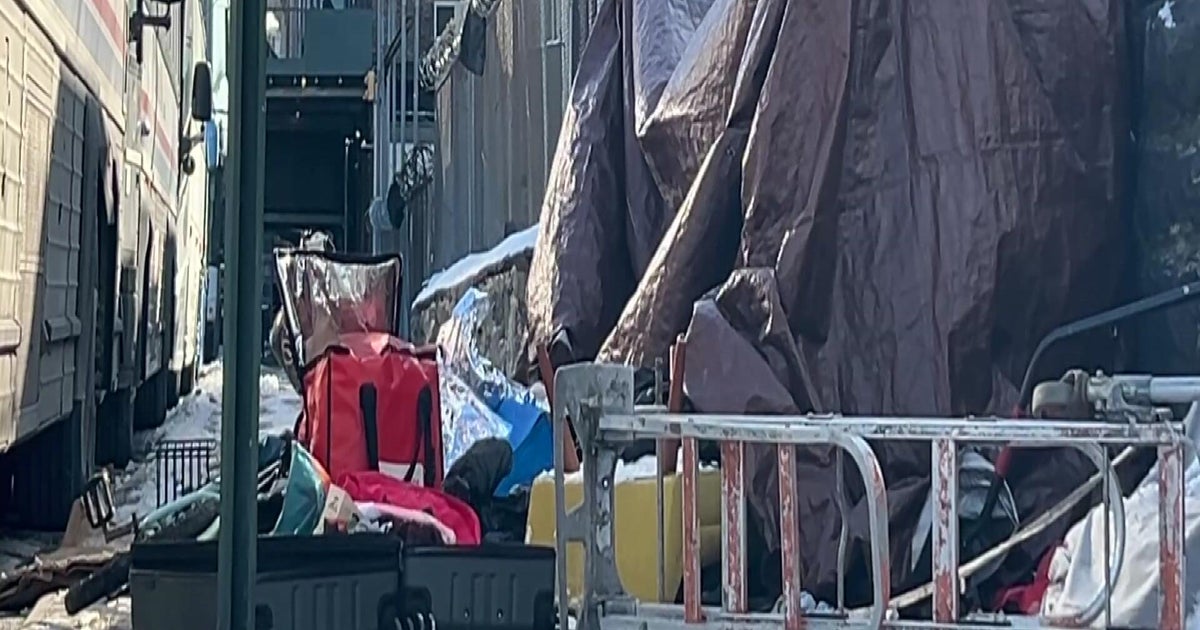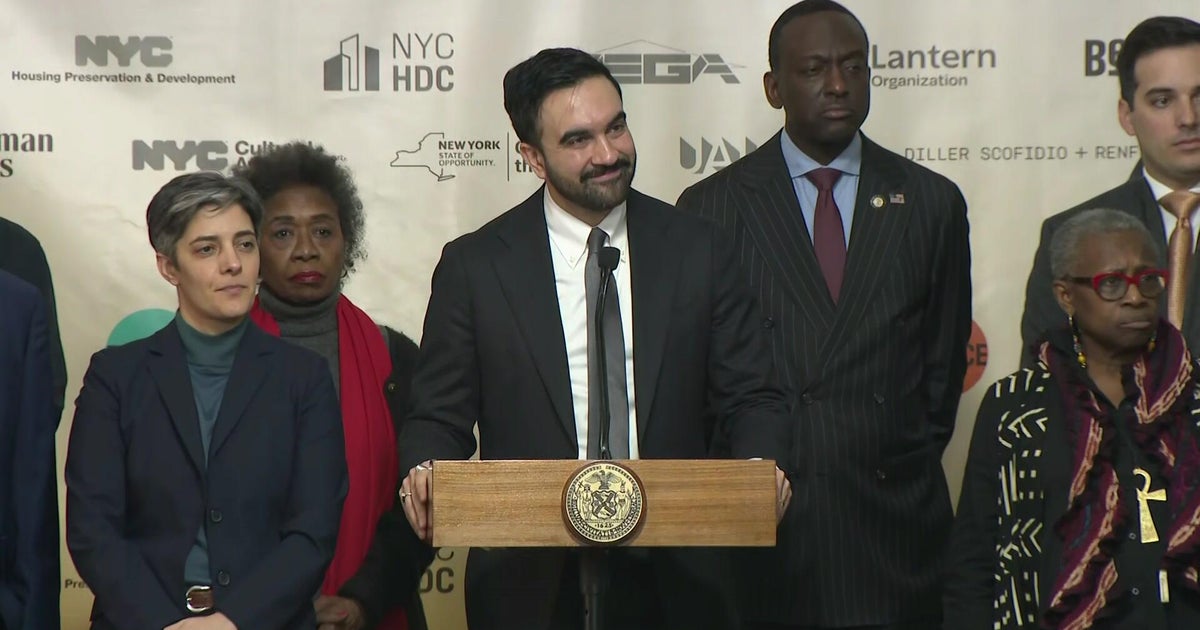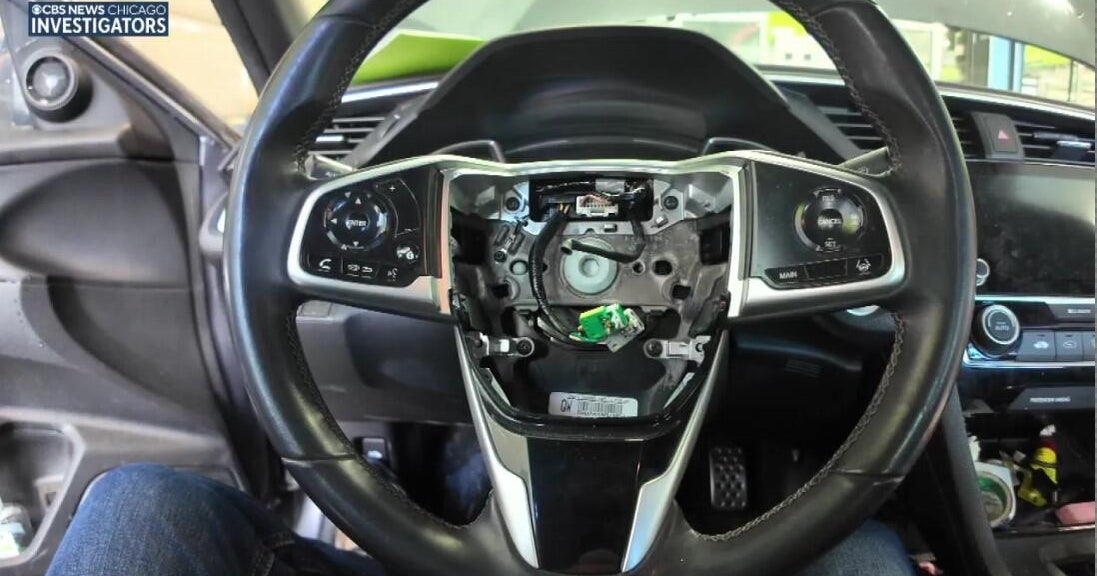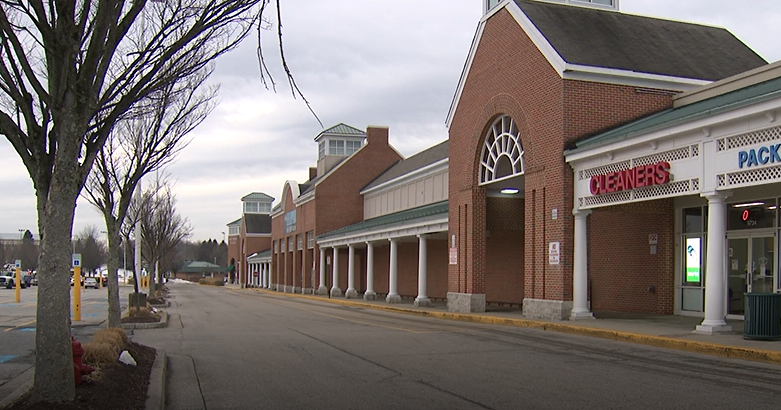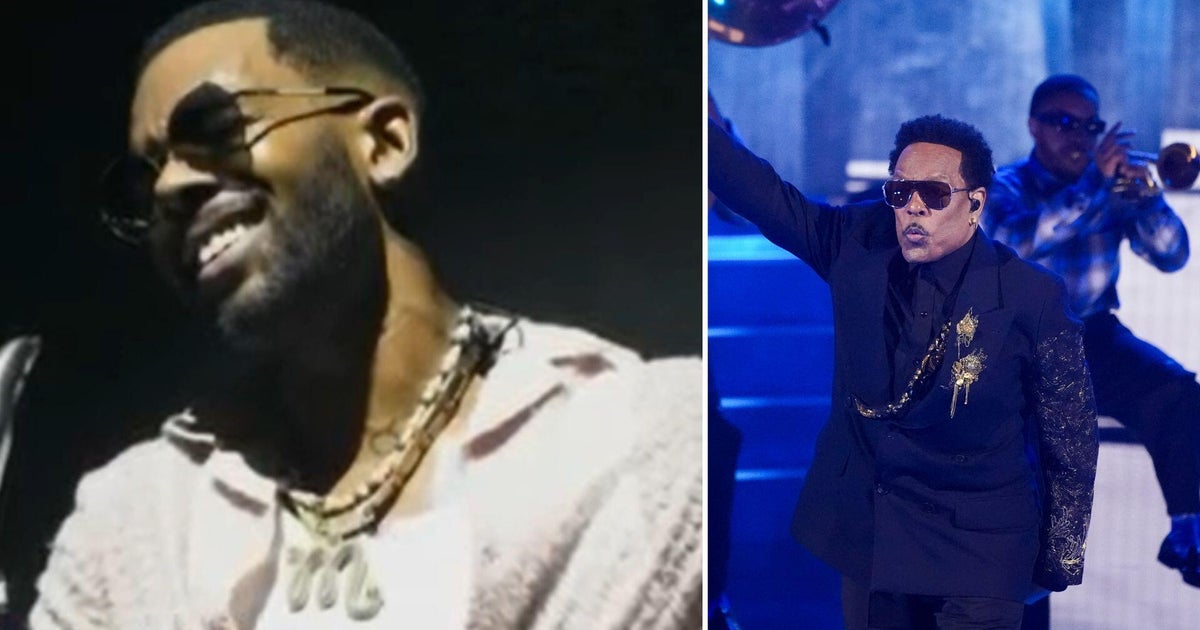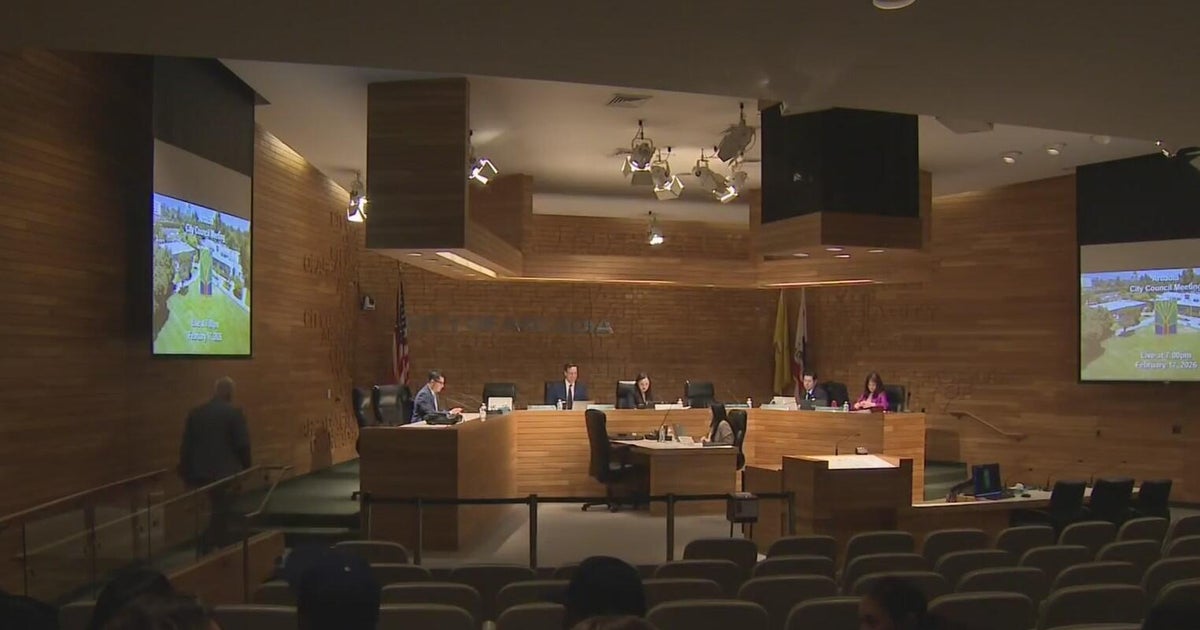I-Team: Gambling Machine Controversy Grips Two Mayors
MIAMI (CBS4) - Last fall, when the Miami Police Department raided more than a dozen locations and seized nearly 400 video machines they claimed were being used for illegal gambling, the department said it was sending a message.
"The City of Miami Police Department will not tolerate illegal gambling machines in the City of Miami," said Major Alfredo Alvarez, the department's expert on the devices known in the Cuban-American community as maquinitas.
But Alvarez and his boss, Chief Miguel Exposito, weren't just firing a shot across the bow of the local vendors of these so-called amusement machines. They were also putting Miami Mayor Tomas Regalado on notice, as well.
Eleven days before the raid, the Miami City Commission, passed a plan crafted by Regalado, to sanction the maquinitas by taxing vendors $500 for each machine they bring into the city. Exposito had argued the ordinance was ridiculous. The city commission was attempting to ignore state law which prohibits these types of machines.
"A city can not pass an ordinance that supersedes a state law," Exposito told CBS4 I Team investigator Jim DeFede.
Regalado went ahead and pushed the ordinance anyway – hoping to generate at least $750,000 in revenue for the financially struggling city.
Exposito had warned Regalado to steer clear of the machines. He said they had been tied in the past to organized crime and even more troubling, the machines were designed to exploit the poorest segments of the community. These video slot machines are most often found in bars and convenience stores catering to low-wage immigrant communities.
In 2003, then Miami Mayor Manny Diaz announced a major crackdown on the maquinitas, arguing that they were affecting the quality of life in the city. Not only did the machines foster illegal gambling, Diaz said, they also led to other crimes, such as strong-arm robbery, prostitution, and domestic violence.
"We are going to clean up our city," Diaz said during a 2003 press conference in front of Miami City Hall. Joining Diaz was Miami Dade State Attorney Katherine Fernandez Rundle, then Police Chief John Timoney, and all of the members of the Miami City Commission, including Tomas Regalado.
"This is a concerted effort that is going to last certainly as long as I am here," Diaz declared. "And I'm certain as long as the commissioners behind me are here."
But as Diaz prepared to leave office at the end of 2009, the company's behind the maquinitas began to pump thousands of dollars into Regalado's mayoral campaign. And after becoming mayor, Regalado abandoned the hard line against the maquinitas and decided instead to embrace them as a way of generating revenue for the city.
The city passed Regalado's plan on October 14. And eleven days later Exposito and Alvarez were launching their raid.
The raid started at 7 a.m., and once it was underway, Major Alvarez said he called Regalado on the mayor's cell phone to let him know what was taking place.
"He was angry," Alvarez recalled. "He told me to stop [the raid]."
Alvarez said he refused.
"I'm a police officer," he explained, "and I have to enforce the laws of the state."
Regalado denies ordering Alvarez to stop. Under the city charter, the mayor is not allowed to give orders to any department heads. Only the city manager can do that.
Regalado does admit to calling then City Manager Carlos Migoya and asking him to stop the raids. Migoya refused.
"I was asking him to see if they can talk to the police so they can postpone the operation until the after the Miami Parking Authority election," Regalado said, although it was unclear why an obscure city election two weeks later would have anything to do with a police operation against illegal gambling machines.
Since the raid, and Regalado's alleged attempts to stop it, the relationship between the chief and the mayor have worsened. The mayor argues Exposito is creating the controversy to take attention away from the recent spate of police shootings in the black community and the calls for the chief to be fired.
The chief's supporters counter that it was only after the chief began speaking out against the maquinitas and the mayor's campaign contributors that the mayor began to lobby for the chief's firing.
Regardless, the controversy now threatens to move beyond the city of Miami. In an interview with CBS4's Jim DeFede, Regalado took responsibility for Miami's plan to tax the video slot machines. But he also admitted the idea came to him after talking to folks in Hialeah, who had passed a similar measure in 2008.
And who did he talk to in Hialeah?
"I spoke to Mayor Robaina," Regalado explained.
Hialeah Mayor Julio Robaina is now the frontrunner in the race to replace Carlos Alvarez as mayor of Miami Dade County.
When we approached Robaina after a recent Hialeah City Commission meeting, he seemed happy to see CBS4 News. But his mood quickly changed when CBS4 News tried to ask him questions about the maquinitas? We wanted to talk to him about the 2008 ordinance he championed that critics say attempted to legitimize more than 1,600 illegal slot machines.
"Submit your questions," he told CBS4's Jim DeFede. "You know that. Submit your questions."
Robaina raced onto an elevator. But when a reporter and photographer got on with him he finally relented and agreed to answer a few questions.
"We can talk about them sure," he said of the gambling machines. "The city council passed an ordinance that regulates and makes sure that the machines are not being used in an illegal manner."
Well how does the ordinance make sure they are not used in an illegal manner? How is that even possible?
"They can not be used for anything that is not an entertainment machine," he replied.
Unfortunately, that's not the experience in Miami. Police argue the sole purpose of these machines is to promote illegal gambling.
"Hialeah is doing it wrong," said Alvarez, the Miami police major who the department's expert on gambling machines is. "Hialeah is actually allowing these machines by not allowing law enforcement to pick them up."
Alvarez said during one recent raid in Miami, his men followed a truck filled with illegal machines from Miami to a warehouse in Hialeah. Alvarez said that warehouse is one of the bases where the machines were being made.
What does that tell you about the nature of the operation you are dealing with?
"It is all being hidden," Alvarez maintained. "And they have found a haven to be at where nobody messes with them. None of those warehouses could exist here in Miami."
And that haven is Hialeah?
"That's what I've noticed, yes," he said.
Hialeah Police Chief Mark Overton bristled at the suggestion he is not doing his job properly. He said he doesn't routinely pick up the machines because it's too hard to tell if they are illegal.
"If it's a game of skill or has some element of skill in it then it isn't illegal," Overton explained. "And that basically is what the statute says."
But where is the skill to hitting a button marked "credits" and then hitting a button marked "play"?
"I don't know, that's part of the issue," Overton said.
Alvarez says it is common sense.
"You saw me play, there is no skill whatsoever," Alvarez said, standing next to one of the machines he had recently seized in Miami.
Alvarez says it defies common sense to believe that someone would play this style of machine – which is nothing more than a video style slot machine – in a bar or corner market if the players weren't getting paid.
"You have individuals who profit from these illegal machines," Alvarez said. "They profit a lot of money and all of that money is tax free. It's all cash. There are no records kept."
How much cash are we talking about? Miami Police officials estimate the average maquinita takes in $1,000 a week. That would mean the 1,600 machines in Hialeah alone are generating $1.6 million a week in cash -- or more than $83 million a year.
Despite the recent concerns raised by Miami police, Robaina continues to defend having the maquinitas in Hialeah.
CBS's DeFede asked Robaina: "You've seen these machines. You think they are actually being used purely for entertainment? You don't think these machines are part of some effort to foster gambling here in your city?"
"No, absolutely not," Robaina said. "If they are used illegally they will be taken away and those businesses will be shut down. That is what the ordinance says and that is what the city of Hialeah does.
So how many Hialeah businesses have been shut down for illegal gambling? Two. Just two businesses have been closed since the ordinance went into effect in 2008.
